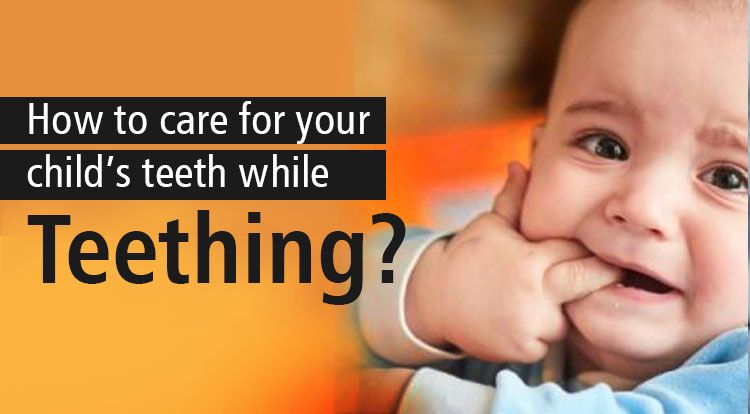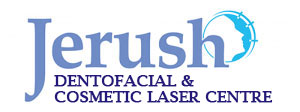
Teething
Teething
Teething is when a baby’s teeth begin to erupt in the oral cavity by breaking through the surface of gums. It may be associated with local and systemic factors that can be troublesome for babies and confusing for parents. Teething is also called odontiasis.The eruption of primary teeth
The eruption of primary teeth (milk teeth) usually starts in the 4th – 6th month. First, two lower front teeth erupt then two upper front teeth erupt next both sides of the teeth eventually erupt. In their third year, most children have all 20 primary teeth in the oral cavity. The primary teeth (milk teeth) play an important role to preserve space for permanent teeth. During the eruption of primary teeth (i.e.) teething local irritation and other disturbance may occur.Sign and symptoms of teething
- The gingival (gums) around the newly erupting primary teeth will swell and become painful to touch.
- Patches of redness on the cheeks.
- Crying for no reason, bringing their hands toward the mouth.
- Improper eating habits.
- Restlessness
- Sleeplessness and change in sleeping habits.
- Increased salivation and drooling.
- Increased thirst.
- Low-grade temperature.
- Rashes in the skin.
- Cough, Bronchitis.
- Diarrhea, vomiting, uncontrolled muscle contraction.
- Bluish swelling over the erupting teeth (erupting cyst).
- Small pieces of hard tissues over the erupting permanent molar teeth (eruption sequestrum).
- Transmigration, transposition.
Preventive measures
- Maintain good oral and general body hygiene.
- A sufficient quantity of vitamins, proteins, minerals should be given.
- Cleaning your baby’s gums should be done after each meal with cotton soaked in cold water.
- Gentle massage to your gums to ease discomfort.
- Keep your baby’s face clean. Always wipe out the drool to prevent rashes.
 Teething-Dental Hospital Nagercoil,[/caption]
Teething-Dental Hospital Nagercoil,[/caption]
General measures:
Babies have the natural desire to chew on hard objects during teething. This helps for a painless eruption.- Hard unsweetened Rusk or toasted bread is given for babies to chew. It helps gingival gum) stimulation and increases blood supply to gingival. Apple, guava helps in teething and also develops taste. Keep your eyes on your baby as these foods may cause choking. Clean their oral cavities after eating, otherwise, it may lead to dental caries if primary teeth exist.
- Pacifiers, teething keys, teething rings, teething blowers help teething. Cold pacifiers and teething toys are soothing to your baby’s gums; but not frozen as it may hurt their mouth. Clean the teething toys or pacifiers before giving them to your babies. Avoid teething products made of plastic, which may break and leads to choking. Avoid teething products made of lead which is harmful to babies. Rubber teething products, teething toys made of firm materials are recommended. Teething toys should be in one piece.
- Teething necklaces are not recommended as they may break while chewing and have a great chance that the baby might swallow the beads.
- Fluid-filled teething rings should be avoided because it may tear and your baby may swallow the fluid.
- Medication that has the anesthetic effect (teething gel) should be not used as it may numb the throat and make your baby hard to swallow.
- Medicines like Benzocaine, Ibuprofen, Aspirin causes serious side effects. Herbal and teething medications are not recommended. Some medicines that contain alcohol are toxic to babies.
- Acetaminophen (Paracetamol) is the recommended dose according to your baby’s weight can be given to relieve pain.
[caption id="attachment_1548" align="alignleft" width="95"]
 Dr-Jovitta[/caption]
Author: Dr. M. Jovitta, Pediatric /Preventive Dental Health Expert,
Jerush Dental & Facial Corrective Centre
Click to read Dr. Jovitta's other blogs: "Why flossing is important" "Brushing Techniques" "Bad breath or Halitosis" "Smoking and Oral Health", Tooth replacement options for missing teeth" "Dental pain & Root canal Procedure", "Coronavirus (COVID-19), Symptoms and Prevention", "Gingivitis & Covid 19" "Oral cancer treatment" "Pericoronitis"
Dr-Jovitta[/caption]
Author: Dr. M. Jovitta, Pediatric /Preventive Dental Health Expert,
Jerush Dental & Facial Corrective Centre
Click to read Dr. Jovitta's other blogs: "Why flossing is important" "Brushing Techniques" "Bad breath or Halitosis" "Smoking and Oral Health", Tooth replacement options for missing teeth" "Dental pain & Root canal Procedure", "Coronavirus (COVID-19), Symptoms and Prevention", "Gingivitis & Covid 19" "Oral cancer treatment" "Pericoronitis" 
No Comments yet!